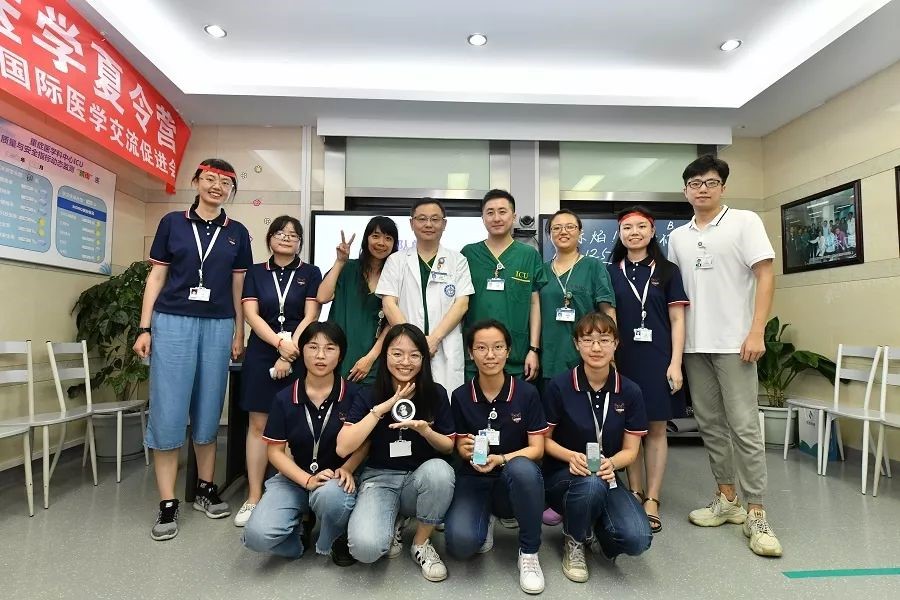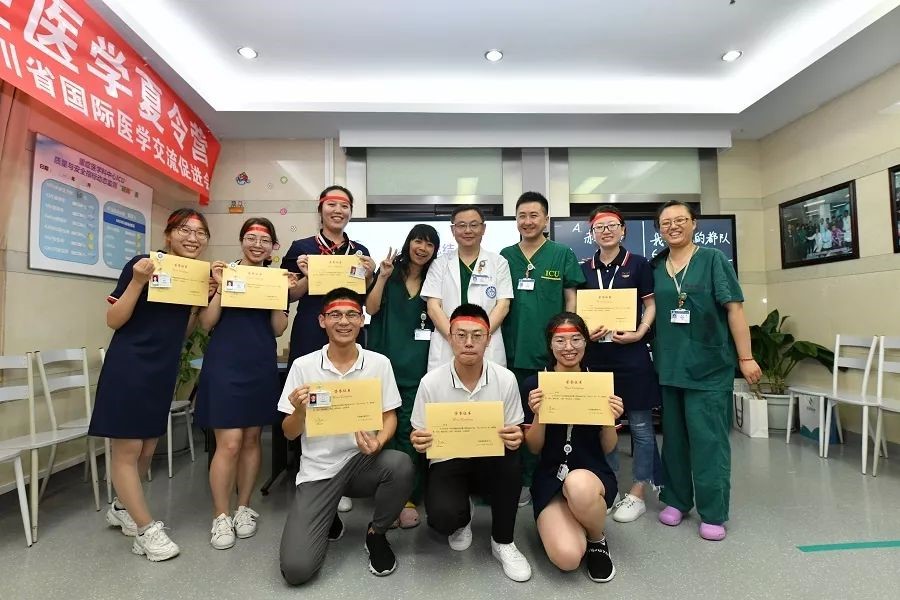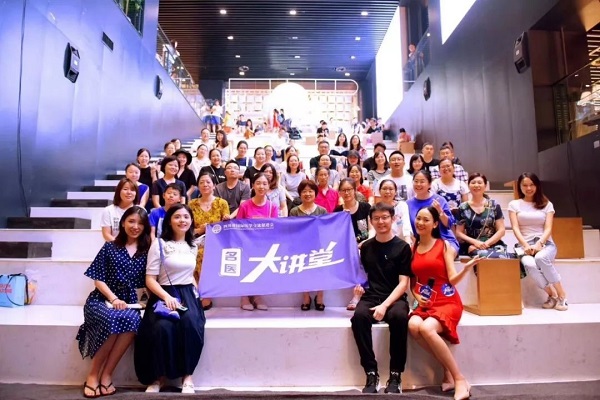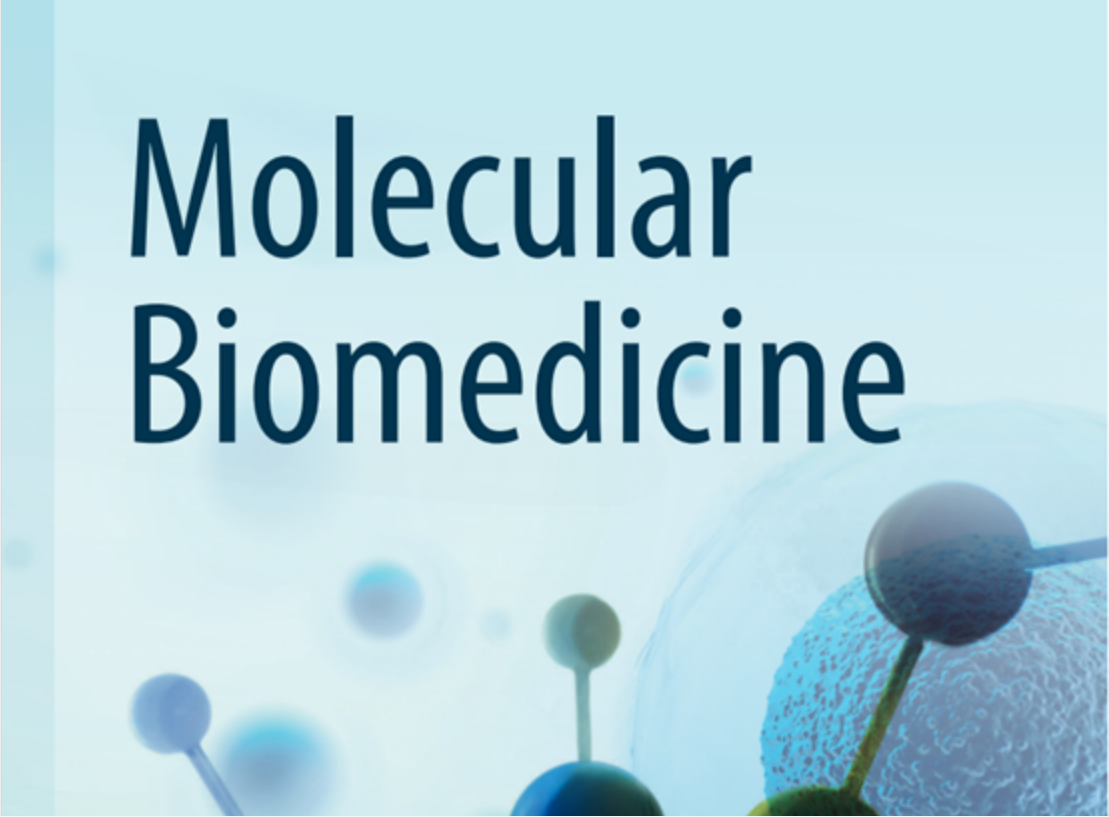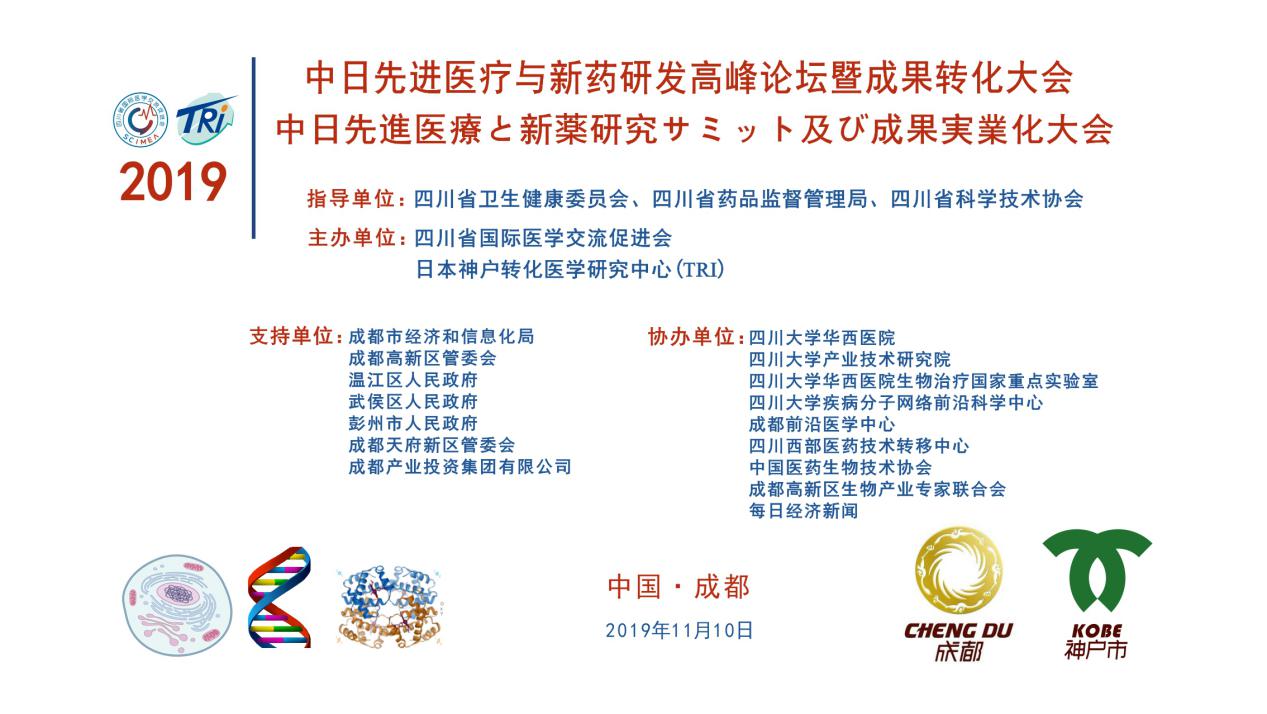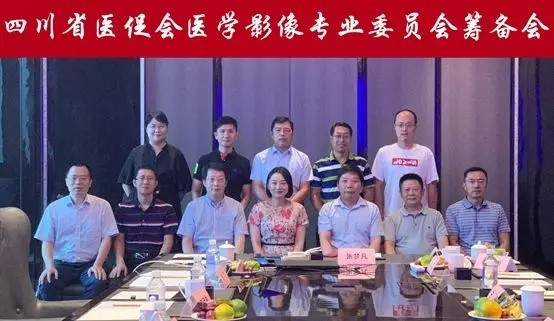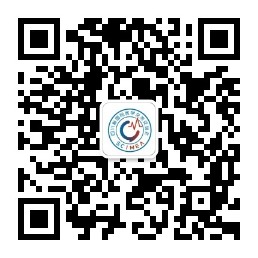For a couple of days from today, we will take you through a "Huaxi-Hawson ICU Summer Camp" journey co-sponsored by the ICU Department of West China Hospital of Sichuan University (WCH) and the Sichuan International Medical Exchange & Promotion Association (SCIMEA). Then, what is exactly this activity that candidates are qualified to participate in only after passing the high standard and strict requirements of "WCH grandmasters"? Come with me, let’s have a closer look!
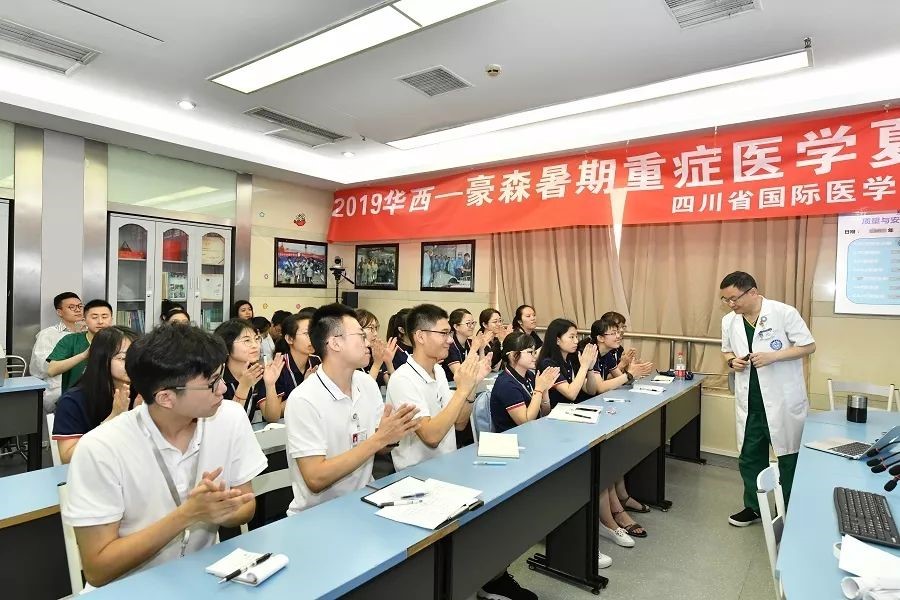
In three days in the Camp, students will face to face with hot shots from WCH feeling the touch of zero distance between life and death and discover the truth of severe case diagnosis and treatment for the first time.
WCH Intensive Medicine Department relies on WCH, the world's largest single hospital with enormous potentiality and lofty goals. In the new century, the Department aims to develop higher and faster, make more and better contributions to the nation’s intensive care medicine, and provide better and more comprehensive services for critically ill patients.
Through such a platform, students not only have the opportunity to show themselves, but also may stand a chance for exemption of taking postgraduate and PhD entrance examinations and for entering postdoctoral workstations.
Now let’s follow WCH aces to take the express train of WCH-Hawson Summer Camp!
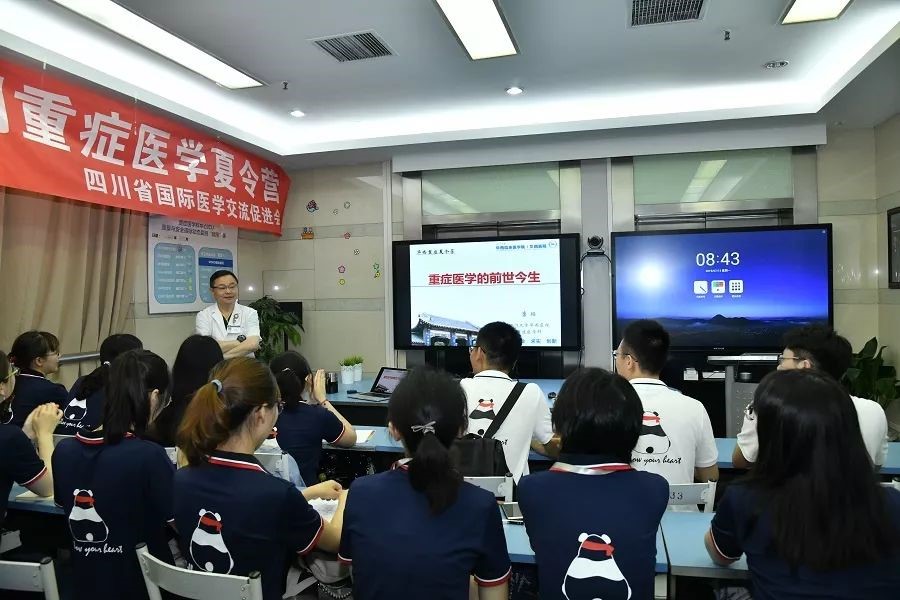
What is intensive care medicine? What exactly does it do? What does ICU do to patients? Prof. Kang Yan, Director of the WCH ICU Department, started with the three questions.
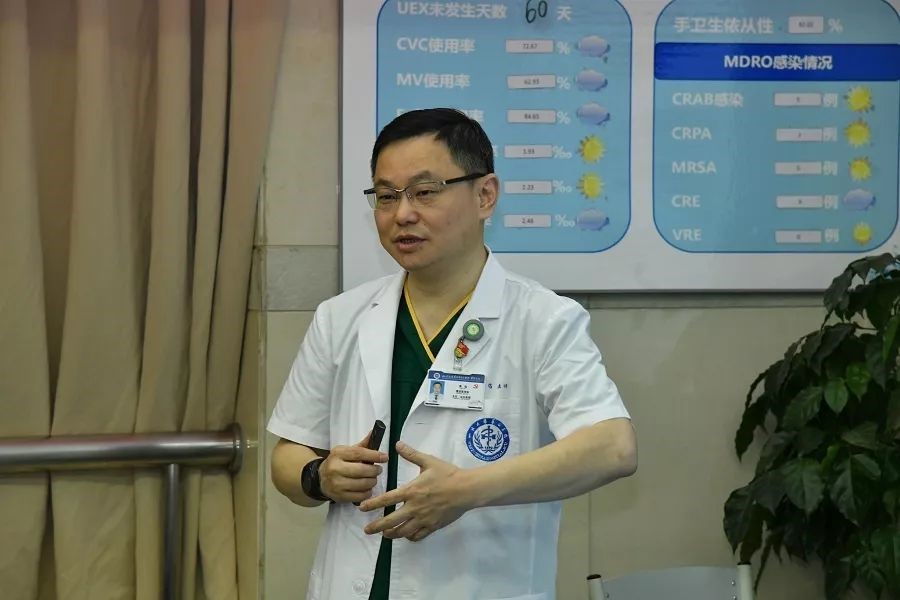
Kang Yan: Director of WCH ICU Department and ICU Doctoral Supervisor
From his own point of view and his pursuit of dreams, Pro. Kang introduced to the students how he determined to study industriously to become a staff of WCH, work at its ICU Department, and take ICU doctor as a career.
He also introduced the origins of ICU in the world and in China. It first emerged in the Nightingale era. The subject has been constructed and developed in a large scale in China since 1990s. From the beginning of the 20th century in particular, as a platform supported department, ICU has offered organ assistance, realized multi-disciplinary platform cooperation, etc., played a decisive role in saving the lives of critically ill patients, and shouldered many social responsibilities.
Prof. Kang pointed out that ICU treatment is the core of emergency treatment and its social responsibilities is to make reserves and contingency plans to respond quickly in case of emergencies. He said that ICU played a vital role in the 2008 Wenchuan earthquake. During the disaster, WCH received 142 severely injured people and ICU doctors’ work priority was to reduce the mortality. They eventually cut the estimated death rate from 40% to 9.8%, the lowest among temblors above magnitude 8 in the world, and won global acclaim.
WCH ICU focuses on talents training and the best way out is always through. To become a versatile and skilled ICU doctor, physicians need attend 12-13 years of medical training. In addition, they have to keep learning and improving ourselves.
In Danger, We Are United
After the introduction of ICU's past and present, Professor Zhou Yan and Professor Yin Wanhong from the Intensive Care Department shared the experience of their ICU team in major disaster assistances: 2008 Wenchuan Earthquake, 2010 Yushu Earthquake, Nepal Earthquake, and the rescue work in Thailand.
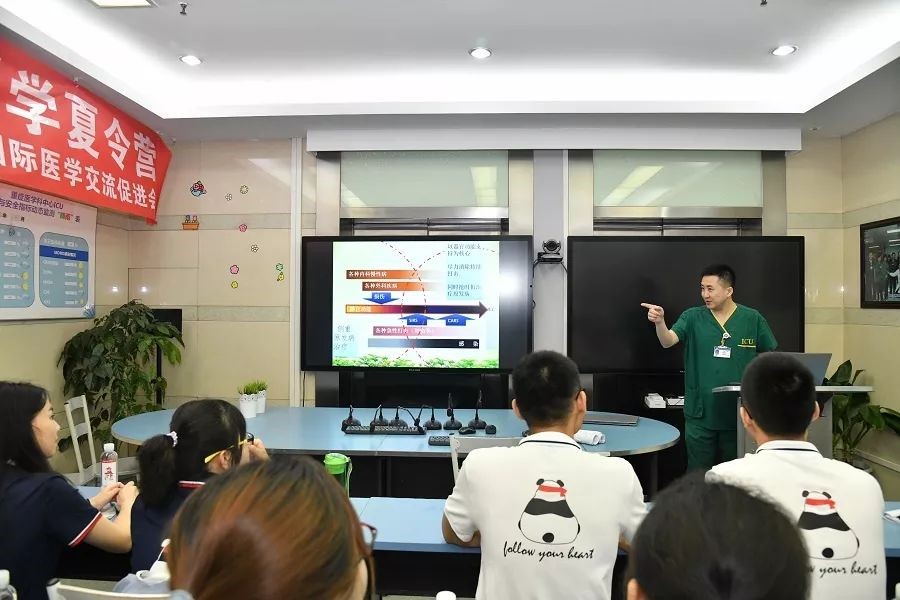
From his perspective of being an ICU staff, Prof. Zhou conveyed the responsibilities and missions of ICU doctors to students. As one of the most involved ICU experts in a wide variety of disaster rescue, he has rich experience in completing rescue tasks in multiple emergent conditions and solid clinical skills. Mr Zhou vividly related his personal experience in the rescue work of Wenchuan, Yushu and Nepal earthquakes.
Wonderful Interactions: Icebreaking Action Through Face-to-Face Communications with Mentors
Then, Mr. Kang discussed vividly and enthusiastically with the students present and patiently answered their questions. The students consulted Director Kang with respect to master's degree, doctoral degree and degree application to the West China Hospital of Sichuan University.
In the afternoon, the students were organized to play a wonderful and interesting ice-breaking game through "quick calculation", "medical knowledge quiz", and "what the doodle" to help students quickly know each other and integrate into the Camp. In the end, the lagging [Red Flame] team got a big reversal by defeating the [What We Say are Right] 125-95 in the game of "three hands and three feet".
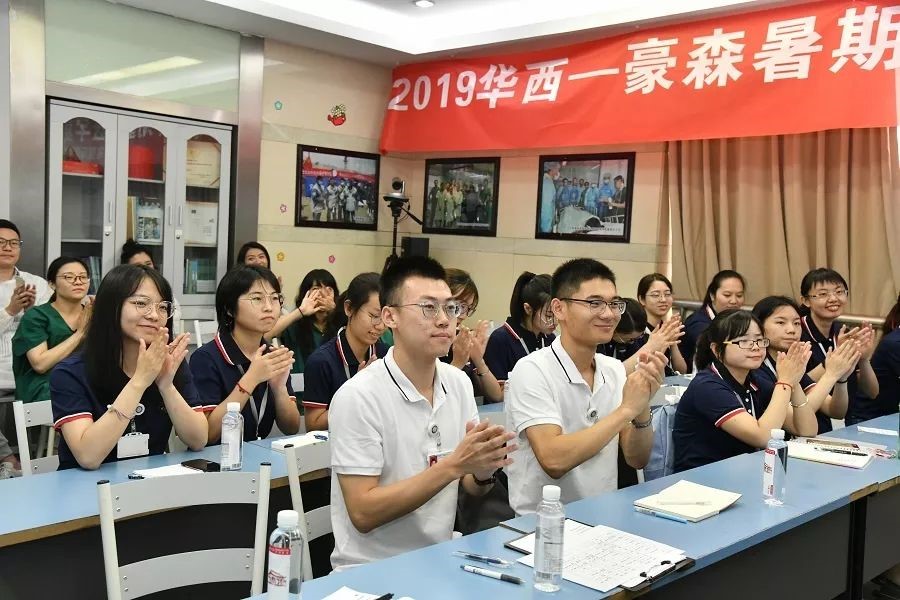
After the game, Mr Kang concluded that the fate is in our own hands, and the success may be in front of us. We must grasp it without hesitation. But the losing team needn’t be discouraged; those who hold on straight to the last second will triumph.
Case Combat: Systematic Fighting Makes Shock no Longer Horrible
There are countless ICU weapons, but you need learn how to them first! Let's explain the theory and then watch by the bedside. I wish I could plant the seeds of ICU in your hearts. Considering people as a whole for systematic fighting, ICU, in a broader sense, is like a master who is familiar with the "martial arts" of other gurus.
Next is the [systematic fighting makes shock no longer horrible], introduced by Professor Yin Wanhong, attending physician from WCH ICU, who talked about the nature of shock and the essentials from general circulation to the microcirculation.
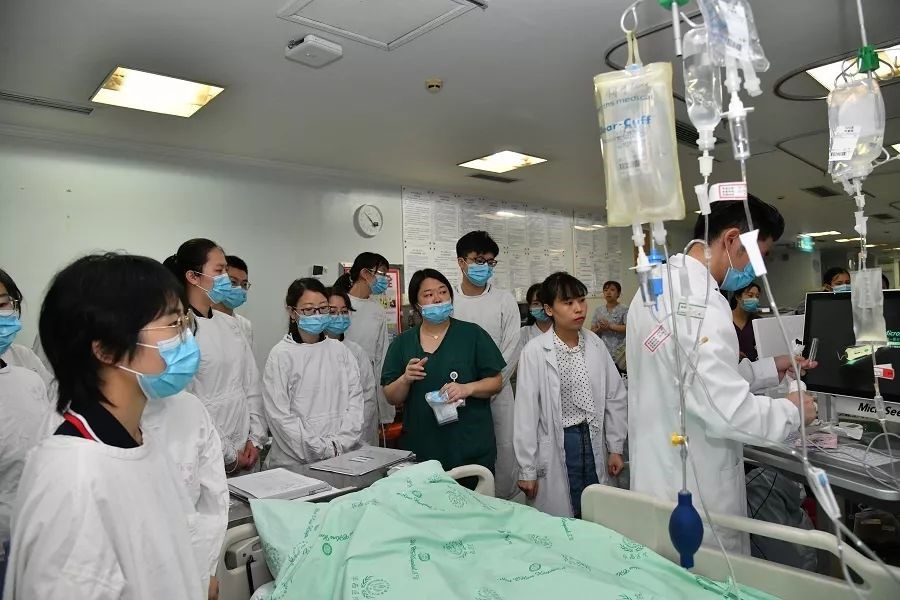
Mr Yin compared blood to river and body to grainfield. He vividly described how each organ in the body undergoes “metabolic regulation” and “autonomous regulation” in the state of shock.
Later on, he demonstrated ICU weapon spectrum using various dynamic examples, such as TEE, SDF, ECMO and other circulatory support instruments, and how shock was solved under the monitoring of these three-dimensional instruments.
After Mr Yin summarized key monitoring points of microcirculation, the students entered the thoracic ICU ward and further mastered relevant knowledge points when seeing the monitoring instruments.
In the evening, the students attended a welcome banquet and ended a fulfilling day!
Tomorrow we will continue to report oh~
